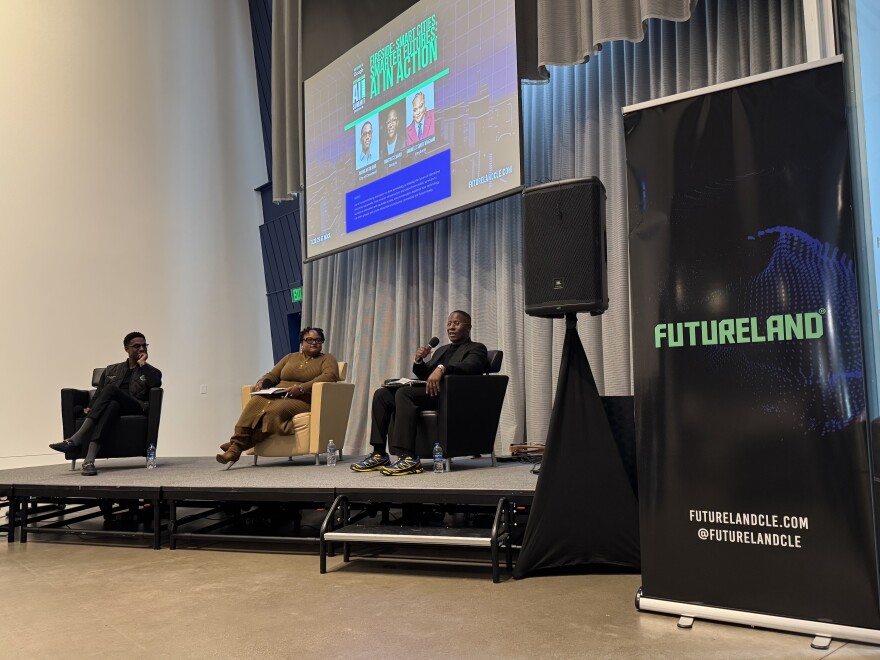Cleveland Mayor Justin Bibb said the city will soon have a strategy to guide its use of artificial intelligence, including training and education for all city employees.
"Over the next few months, we will be launching an enterprise-wide AI strategy for all 8,000 of our employees at City Hall ... to really train and educate City Hall employees on how to use AI and what it means for how we deliver basic city services," Bibb said at a Thursday speech at FutureLAND, an annual AI Summit hosted at the Cleveland Museum of Contemporary Art.
Bibb, who campaigned on a promise to modernize City Hall, said that work begins with securing city systems after a ransomware attack took down operations for weeks last summer.
"We have to crawl before we walk," Bibb said. "And the reason why I say that is because there are there's so much opportunity and innovation in the AI space right now, but there are also a lot of threats."
Bibb called AI the biggest disruption to the American economy since the invention of the automobile. He said the city and its public schools must keep up to make sure residents and students are prepared for a rapidly adapting job market.
"We need to make sure that the next generation of workers and leaders in Cleveland and our young people are being exposed to what AI can do," Bibb said. "We're not talking about blue collar jobs that are going to go away. White collar jobs are going away."
That may include training and language coding to build and advance AI systems, according to Bibb.
He is also highlighted AI software City Detect, which will soon be adopted by the city to survey vacant properties amid a shortage of housing inspectors. He pitched future possibilities, too, like AI agents answering and assisting residents' 311 service calls.
A cyberattack crippled city services for almost two weeks last June, making it difficult for residents to get birth certificates and building permits. An investigation with the Federal Bureau of Investigation confirmed the attack was ransomware: a type of malware that holds victims’ information or data hostage until a ransom is paid.







